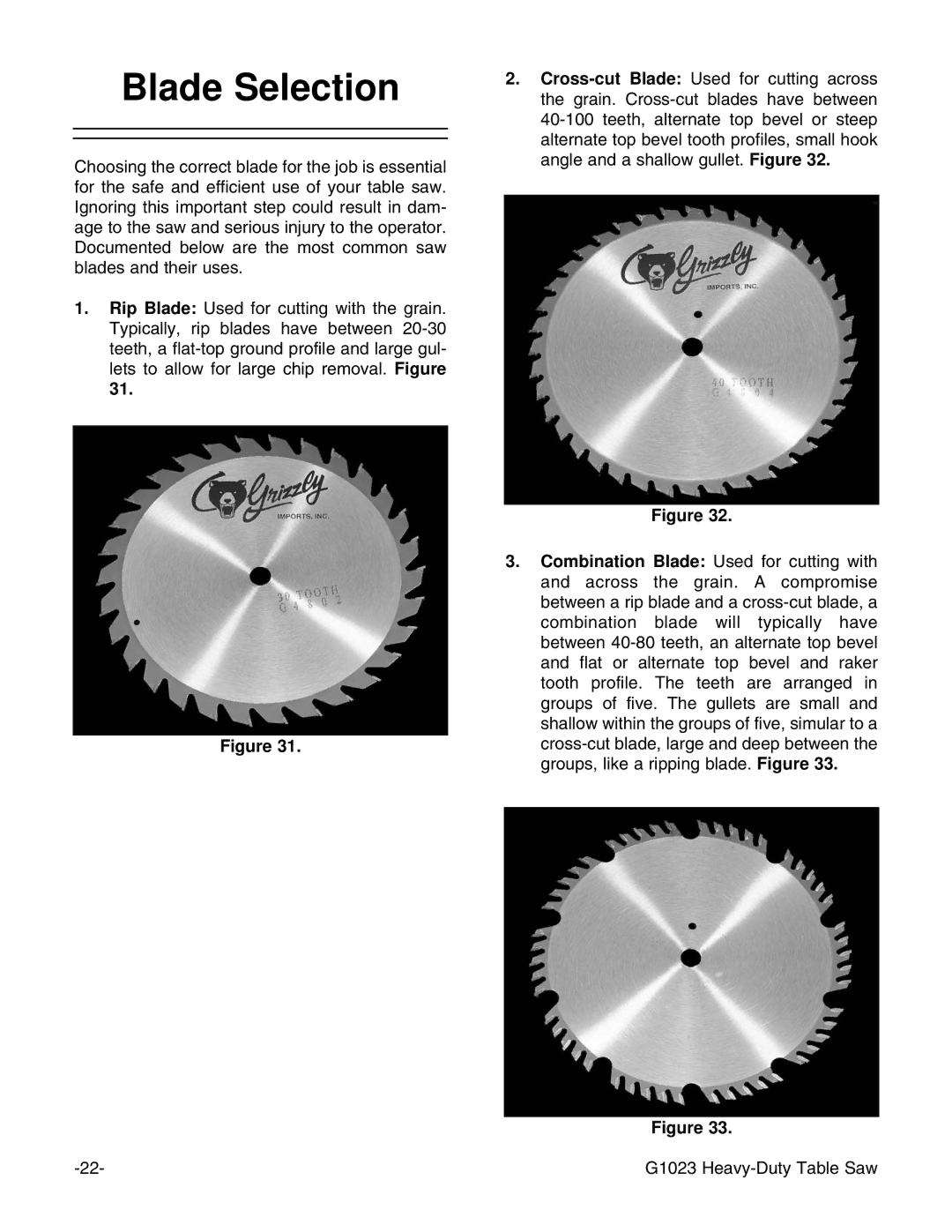Blade Selection
Choosing the correct blade for the job is essential for the safe and efficient use of your table saw. Ignoring this important step could result in dam- age to the saw and serious injury to the operator. Documented below are the most common saw blades and their uses.
1.Rip Blade: Used for cutting with the grain. Typically, rip blades have between 20-30 teeth, a flat-top ground profile and large gul- lets to allow for large chip removal. Figure 31.
Figure 31.
-22-
2.Cross-cut Blade: Used for cutting across the grain. Cross-cut blades have between 40-100 teeth, alternate top bevel or steep alternate top bevel tooth profiles, small hook angle and a shallow gullet. Figure 32.
Figure 32.
3.Combination Blade: Used for cutting with and across the grain. A compromise between a rip blade and a cross-cut blade, a combination blade will typically have between 40-80 teeth, an alternate top bevel and flat or alternate top bevel and raker tooth profile. The teeth are arranged in groups of five. The gullets are small and shallow within the groups of five, simular to a cross-cut blade, large and deep between the groups, like a ripping blade. Figure 33.
Figure 33.
G1023 Heavy-Duty Table Saw

